Publisher Scorpion Masqué is no stranger to the party game scene: their 2018 hit Decrypto ranks #1 amongst party games on BGG and their early 2020 release Stay Cool continues to sit on my list of top 10 favourite games of 2020. Their most recent party game, Master Word, takes some of the word-based deduction from Decrypto and the real-time speed crunch in Stay Cool, and blends it into an exciting cooperative game smoothie that plays relatively quickly — and works wonderfully over webcam.
In Master Word — a game for 3 to 6 people — players are working cooperatively to uncover a ‘master word.’ One player acts as the Guide (who knows what the master word is) while the other players are Seekers, who use clues to zero in on the secret word. Each round, the Seekers write down a number of clues then the Guide indicates how many clues are ‘good’ (read: on the right track). All players — Guide and Seekers alike — win the game if they’re able to deduce the master word by the end of 7 rounds. There are, however, a few ways in which players can lose, but before I get into those let me explain how Master Word is played.
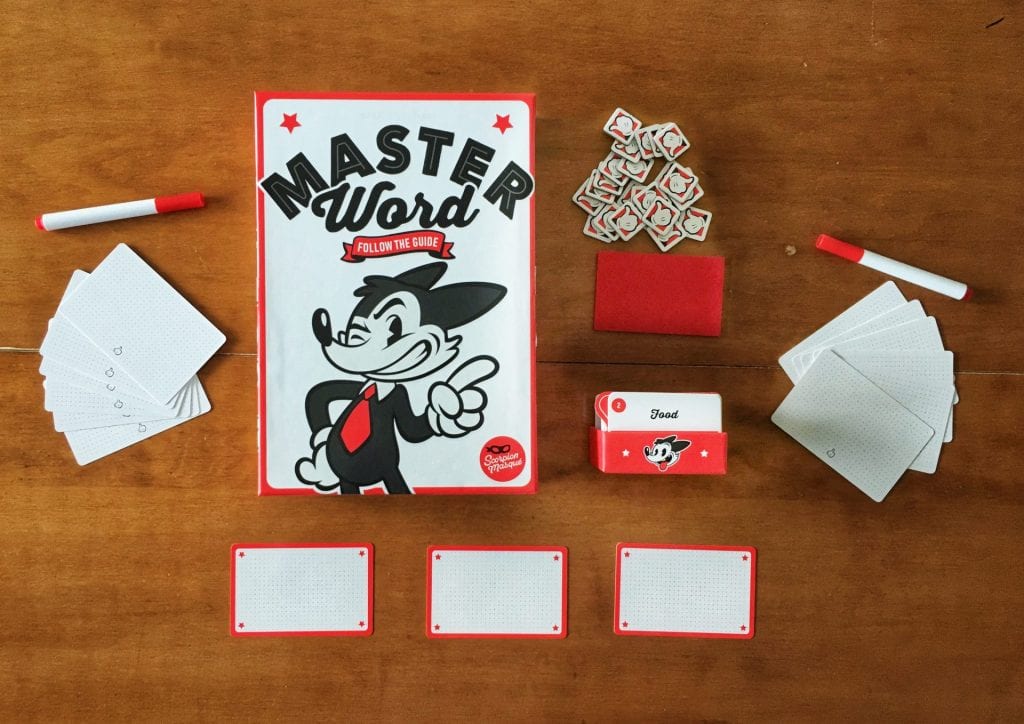
Master Word Gameplay
To begin a game of Master Word, players first determine who will be the Guide and who will play as the Seekers. The Guide then secretly looks at the red portion of the Master Word Card, which shows the master word the Seekers are trying to discover. The white portion of the Card features a general hint/category for all players to see.
Each Master Word Card is double-sided and has a number from 1 to 300; as the card numbers increase, so does the game’s level of difficulty.
Each Seeker then takes 6 Clue Cards and a red marker. The 3 red-bordered Solution Cards are placed nearby.
Master Word plays in up to 7 rounds with each round consisting of 2 phases: the Seeker Phase and the Guide Phase.
Seeker Phase
To kick off the Seeker Phase, the Guide starts a 90-second timer (not included), then only the Seekers discuss and decide which clues they’ll use to narrow down their options based on the Card’s hint/category. Clues are used to identify whether or not the master word has a certain characteristic. A clue written on a Card is not restricted to one word, but it must only communicate a single idea. Before time is up, each Seeker must write a clue on one of their Clue Cards and place it in the row with the other Seekers’ Cards. (In games with only 2 Seekers, each Seeker contributes 2 Cards per round.) While the Guide can’t actively contribute to the discussion, they should still be listening to the Seekers’ table talk during this Phase since it could help them in the next phase — or in later rounds.
Guide Phase
During this Phase, the Guide now has the opportunity to actively participate in the game. The Guide may first ask the Seekers for any clarifications they need for the clues written. They then determine — in their head — how many of the round’s clues will help the Seekers uncover the master word. Next, they place a number of Tokens at the end of the row of cards for each clue they decided was helpful. As such, the Seekers won’t know which specific clues were good, only how many.
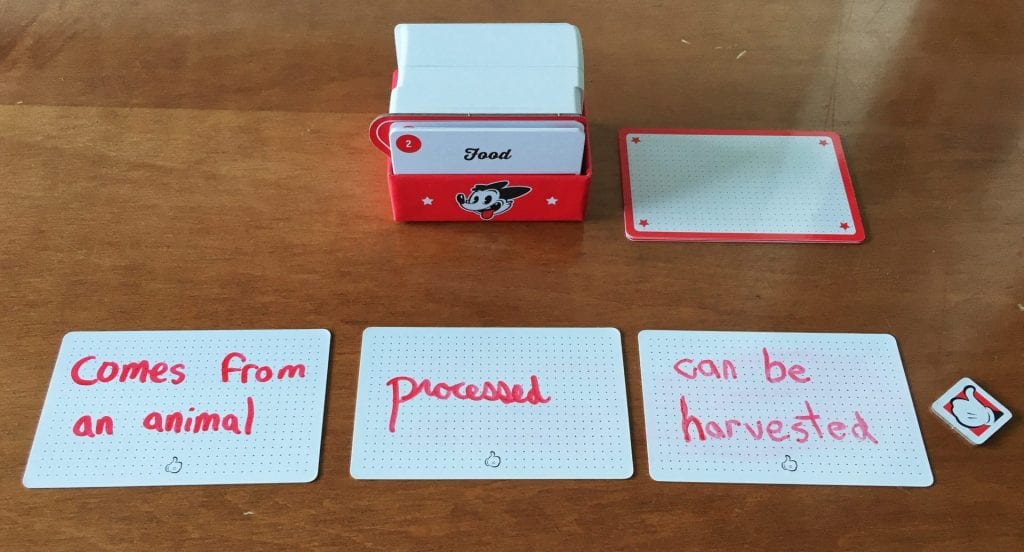
After the Guide Phase a new round begins and players go through the two phases again until 7 rounds have been played — or players win or lose before that point.
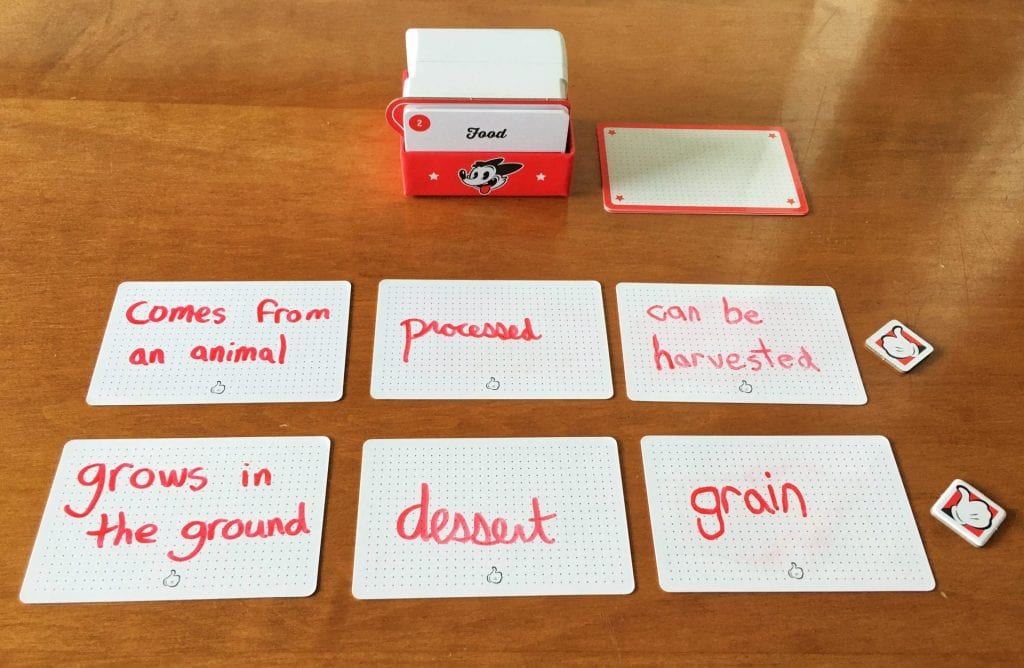
The Joker — or How to Help Your Friends When They Can’t Help Themselves
Sometimes…okay, often…the Seekers’ discussion will take them down a self-destructive train of thought that will completely derail gameplay and everyone’s chances of winning the game. (This is especially true when you get to playing with the more difficult Master Word Cards.) As the Guide, it is incredibly difficult to sit by, trying to remain silent and straight-faced, all the while watching your team go down. Thankfully Master Word provides the Guide and their team with a saving grace: the Joker. Once per game, the Guide may move a Token from the end of any round’s row — including the current round — and place it directly on a Clue Card. This signals to the Seekers that this clue is real good and they should perhaps stop discussing the different, delicious flavours of Kit Kat bars in Japan and instead go back to anime characters (a scenario that may or may not have actually happened in a game where I was the Guide).
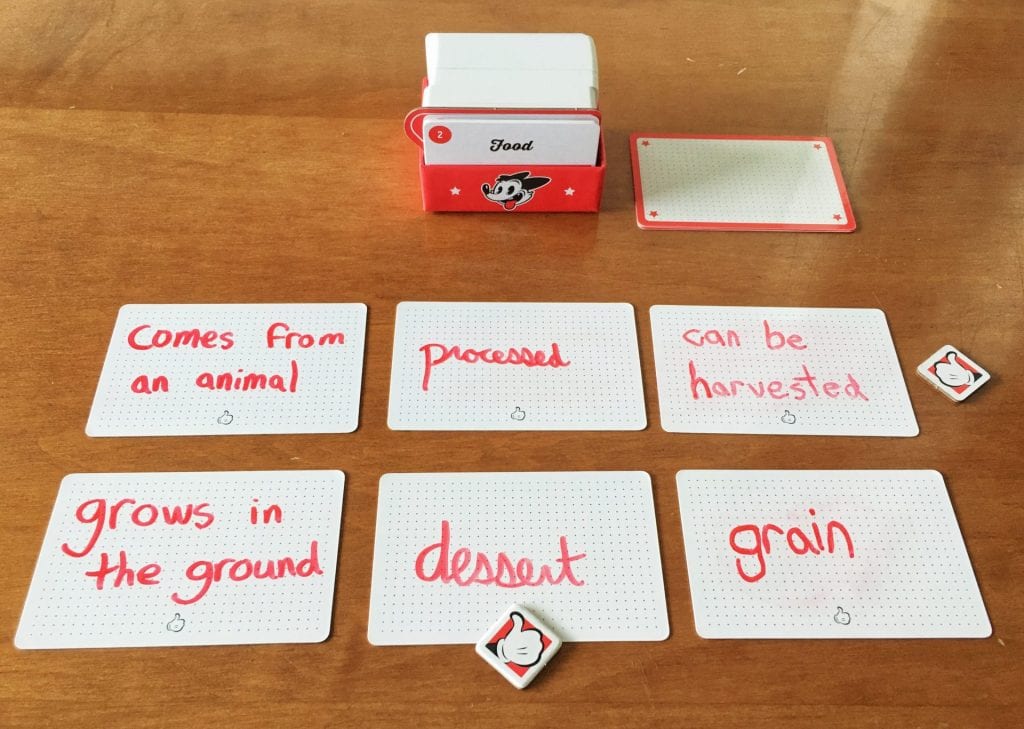
Win or Lose, It’s How You Play The Game
Starting in the second round, if the Seekers think they know the master word they may write it on a Solution Card instead of contributing a Clue Card that round. There are, however, only 3 Solution Cards for the entire game so it’s important to use them wisely. If a Solution Card has the master word written on it, everyone wins the game immediately. If the Solution Card has an incorrect answer, it is simply treated as a regular clue for that round (i.e. the Guide assesses it like the other Clue Cards to determine whether it’s helpful — and spoiler, it’s usually not).
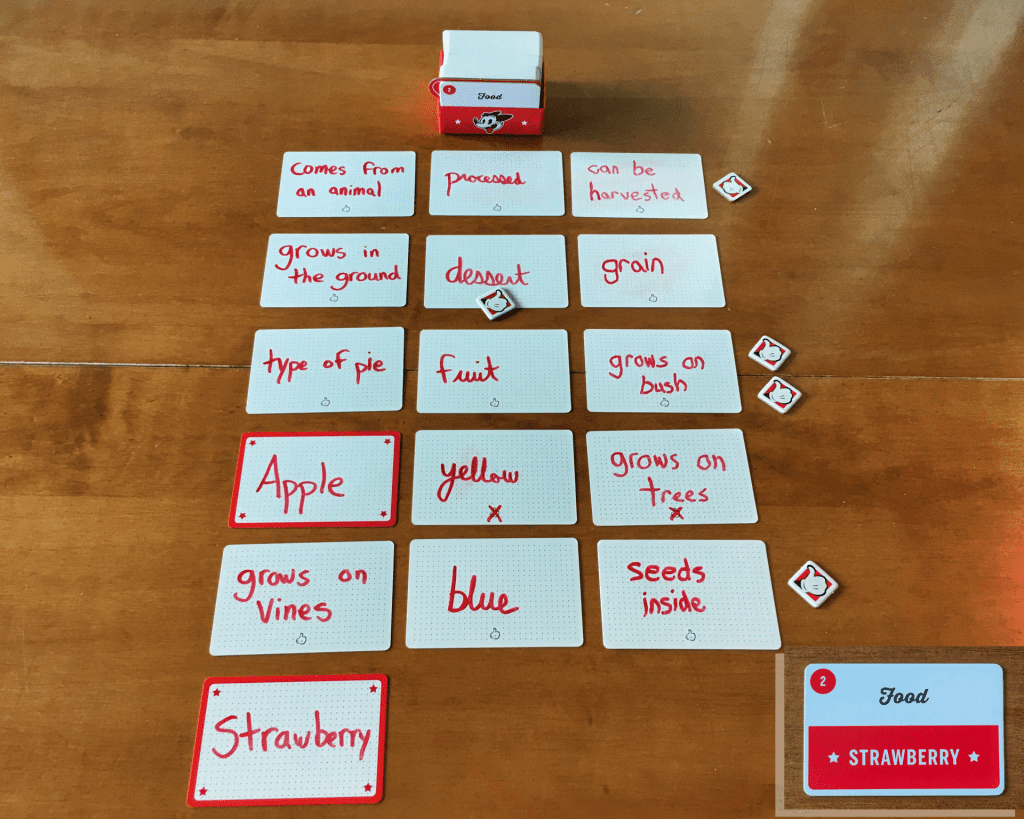
So how do players lose a game of Master Word? The game ends in defeat if:
- All the Solution Cards have been used and the master word was not found.
- You play 7 rounds and don’t find the master word.
- You write the master word on a regular Clue Card.
Final Thoughts
Master Word surprised me; I knew it would be a good game because it’s from Scorpion Masqué and they publish great games in general — but I didn’t expect to have as much fun playing it as I did. While Master Word has some wordplay and deduction in it, at its heart it’s a party game that comes to life because of the players and the discussions they have around the table.
Aspects of it reminded me of Mysterium, especially when I played the Guide. There were times where I wanted nothing more than to playfully shout at the Seekers as they, on more than one occasion, glossed over the correct master word in their discussion. I found too that, much like Mysterium, the effects of the Seekers’ table talk influenced the Guide in every game I played. There were times where the Guide might not put down a Token for a factually correct Clue Card because they feared it would mislead their team. For example, in one game where I was the Guide, the master word hint was “Japanese.” I chose to not give a Token for the clue ‘comic book’ because even though the master word was definitely featured in comic books, it wasn’t one of its defining characteristics…and based on their discussion, I knew it would take the Seekers down the wrong path. (This, in case you were wondering, is allowed and explicitly mentioned in the rulebook; the role of the Guide is to guide the Seekers to the master word and not to prove they’re a big smartypants.)
What I found particularly refreshing about Master Word was just how quickly it played; the box says 15 minutes and I’d say that’s accurate. What keeps Master Word from dragging on is the timed Seeker Phase. Thanks to the timer, there is a really nice added layer of tension, but it also keeps AP down and prevents player discussion from getting too long and convoluted, as well as minimizes the quarterbacking problem many co-op games are faced with.
For me, Master Word is an excellent addition to the party game genre and one that works remarkably well with what has become my new gaming reality — that is playing remotely over video chats or online. (In fact, I have only ever played Master Word remotely, which is why I also added it to our 2020 Holiday Gift Guide as one of the best games for virtual play.) At this point, any game that allows me to not only safely play over video chat with family and friends, but to also have fun and laugh a lot is a winner — and Master Word is just that.
Want to see a game of Master Word in action and how you can play it remotely? Check out Scorpion Masqué’s Facebook page where I was invited to do a live playthrough of the game along with some friends.


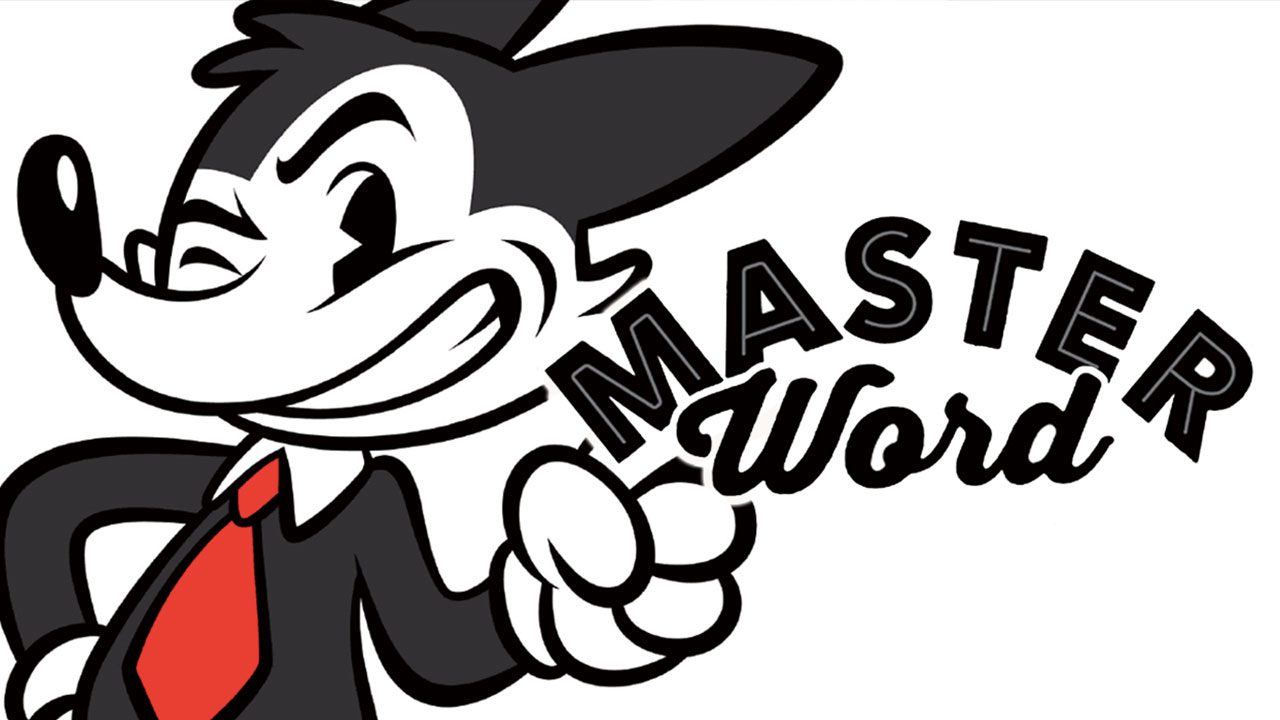









Add Comment